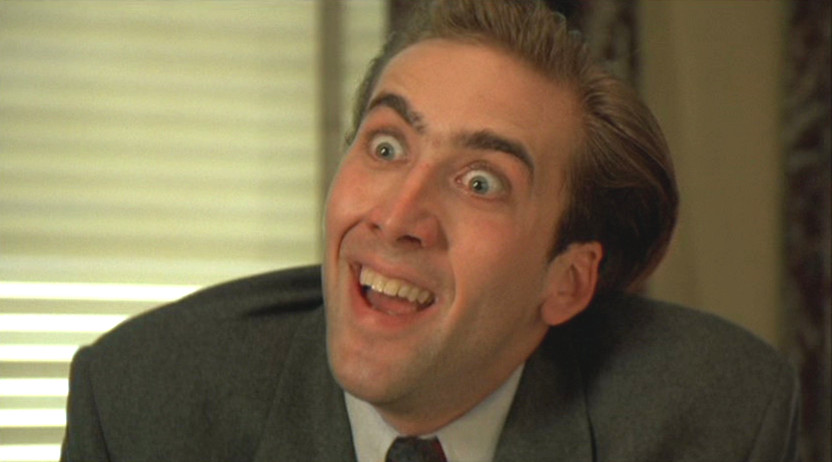
There was no shortage of cinematic comedy during the 1980’s. Zany parodies a’la the Zucker Brothers were extremely popular, as were the sentimental teen pictures of John Hughes. Sex comedies in the vein of Porky’s and Revenge of the Nerds emerged regularly, and Saturday Night Live certainly had a profound impact.
Then there were unexpected, bizarre successes like Crocodile Dundee, Yahoo Serious (Young Eintein, anyone?), and Ernest P. Worrell. If one is willing to dig deep through the forgotten oddities of 80’s cinema, a large number of hilarious gems are waiting to be found. Here’s a handful of often-overlooked 80’s comedies that are well worth your time.
1. Forbidden Zone (1980)
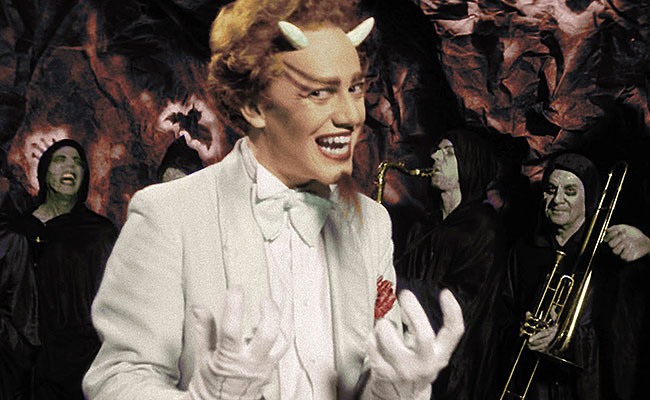
The Mystic Knights of the Oingo Boingo was a musical theater troupe founded by Richard Elfman in the early 70’s. When Richard decided to pursue filmmaking full-time, he offered little brother Danny Elfman the chance to take his place in the Mystic Knights; Danny readily agreed (later shortening the name to simply Oingo Boingo) and Richard dove headfirst into the process of making his first feature: Forbidden Zone.
The script came from Mathew Bright (Freeway, Ted Bundy), a fellow member of the Knights who, like Richard, was totally unfamiliar with the world of making movies.
Describing the plot of Forbidden Zone is no easy feat, but here goes: it tells the story of the Hercules family – mother Virginia, father Pa, son Flash, daughters Frenchy and Rene. They’ve just moved into a new home, and discover a gateway to the Sixth Dimension in their basement.
First Rene passes through, then Frenchy goes to find her; waiting for them on the other side is a warped kingdom ruled by a perverted dwarf, King Fausto (Herve Villechaize), and his insane wife, Queen Doris (Susan Tyrrell). There’s also Princess, ditzy and perpetually topless, and frog-headed servant Bust Rod (best name ever), in addition to a general population of wacky freaks.
On visual terms Forbidden Zone is in a league of its own, hideous in a strangely beautiful way. Virtually everything was built by hand, including exteriors, lending the picture a ‘playhouse’ feel very much in the tradition of Elfman’s theatrical background.
Set design for the Sixth Dimension, showcasing backdrops made of cardboard adorned with magic marker, looks like the work of Mario Bava in collaboration with a deranged cartoonist. Similarly, the humor is both absurd and scatological, intelligent and knowingly stupid, with frequent references to flatulence, excrement, and bizarre sex.
Multiple musical sequences are scattered throughout the proceedings, all of them energetic and engaging (it helps that the soundtrack is some of Oingo Boingo’s best work). Elfman’s picture also boasts vibrant animation sequences from John Mutos, a talented artist who would go on to design the productions for Gleaming the Cube and Species.
Forbidden Zone was widely panned in its day; some viewers took issue with the film’s (satirical) use of blackface; many theaters refused to screen it. Over time, a sizable cult following has emerged, allowing Forbidden Zone to receive the adoration it deserves.
2. Polyester (1981)
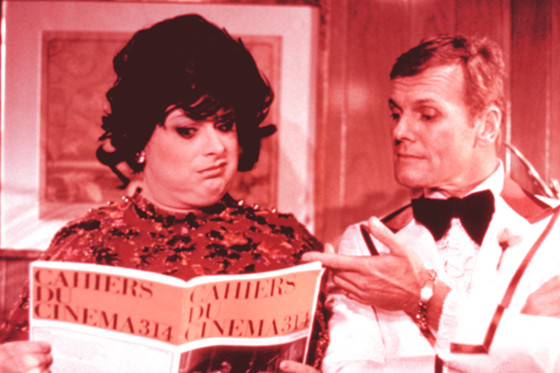
John Waters’s first flirtation with mainstream audiences, Polyester was also the first film of his to earn an ‘R’ rating. Waters fans often cite the early work as his strongest, but in this author’s opinion later efforts like Polyester (and especially Serial Mom) best capture his sense of humor and subversive interests.
Divine stars as Francine Fishpaw (Waters loves his alliteration), neglected wife and mother. Life is difficult for Francine, a never-ending series of woes. Her unfaithful husband Elmer runs an adult movie theater in town, which causes the locals to mount daily protests on the front lawn. Son Dexter is a glue-sniffing reprobate with an all-consuming foot fetish (he has an unfortunate penchant for sneaking up on unsuspecting women and stomping on their feet).
Lu-Lu, the daughter, is pregnant by a delinquent junkie named Bo-Bo (punk rock legend Stiv Bators). Francine’s mother, La Rue, drops by regularly to steal money and provide a stream of put-downs and verbal abuse.
After Francine catches her husband in bed with his floozy of a secretary, she insists on a divorce and sinks into an alcoholic depression. Just when all seems at its darkest, Francine crosses paths with handsome hunk Todd Tomorrow (Tab Hunter) and things seem to be improving… or do they?
Waters has a fascination with, and deep love for, all things distasteful; his work focuses primarily on subject matter that makes most people profoundly uncomfortable. He drags these taboo topics to the forefront and exaggerates them with an infectious glee, his characters often totally unbelievable but endlessly watchable and hilarious. Divine is fantastic as Francine, completely disappearing into the role. It’s a tremendous performance, both hysterically funny and emotionally resonant.
With Polyester, John Waters moved out of the slums and into the suburbs; while his first several efforts depicted social outcasts living on the outskirts of civilization, this one explores the lives of misfits existing within proper society. Turned loose on middle-class suburbia, Waters delivers razor-sharp satire that ranks amongst the best America has ever produced.
3. Easy Money (1983)
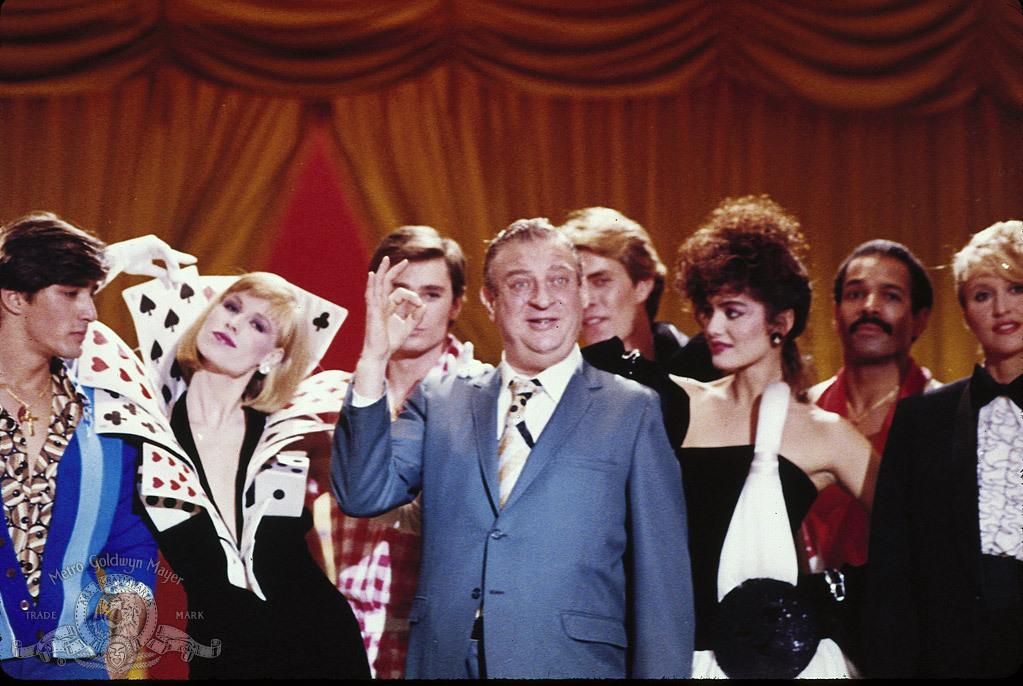
Rodney Dangerfield appeared in three classic 80’s comedies: Caddyshack, Back to School, and the least-remembered of this trio, Easy Money. It’s also the best. Dangerfield (in his first starring role) plays Monty Capuletti, a hard-partying husband and father who works as a baby photographer in New Jersey.
When Monty’s wealthy mother-in-law dies, the Capuletti clan is set to inherit millions of dollars if Monty can adhere to a strict set of rules: no drinking, philandering, gambling, overeating, smoking, or drugs. He must curb his vices for one year, or his family receives nothing.
This is a man used to strip clubs, seedy card games, sleeping until noon, waking up to a joint and a beer. An entire year of sobriety is unfathomable for Monty; it’s especially agonizing with a pair of terminally-inebriated buddies (Joe Pesci, Tom Noonan) constantly at his side, and a daughter (Jennifer Jason Leigh) set to marry a thug named Julio (Taylor Negron).
To top it all off, a former employee (Jeffrey Jones) of Monty’s deceased brother-in-law is personally invested in his failure, hoping to claim the fortune for himself. Easy Money is all killer and no filler. Clearly it boasts a stellar supporting cast, a who’s-who of upcoming talents on their way to sustainable careers.
All of them were young and hungry, desperate to prove themselves, and they put in excellent work. Pesci, an actor blessed with underrated comedic gifts, plays Monty’s hot-headed best friend Nicky; he and Dangerfield share a lot of screen time, displaying a real chemistry.
It feels like these guys have always known each other. The subplot involving the marriage between Monty’s daughter and Julio is priceless. Taylor Negron absolutely nails his role, delivering several of the film’s best lines (“Allison! Come down! I’m the man!”). A tremendous performer who sadly passed away in 2010, Negron brings the house down every time he appears.
Easy Money isn’t a screwball farce or zany slapstick, but instead a character-driven situational comedy with the perpetually put-upon Dangerfield at its center; he would never again encounter a film role so perfectly suited to his comedic sensibilities. Well crafted and unfailingly hilarious from start to finish, Easy Money never feels like a thrown-together vehicle for a popular comedian. It still works beautifully today and serves as the ultimate example of why Rodney Dangerfield is so revered.
4. Hardbodies (1984)
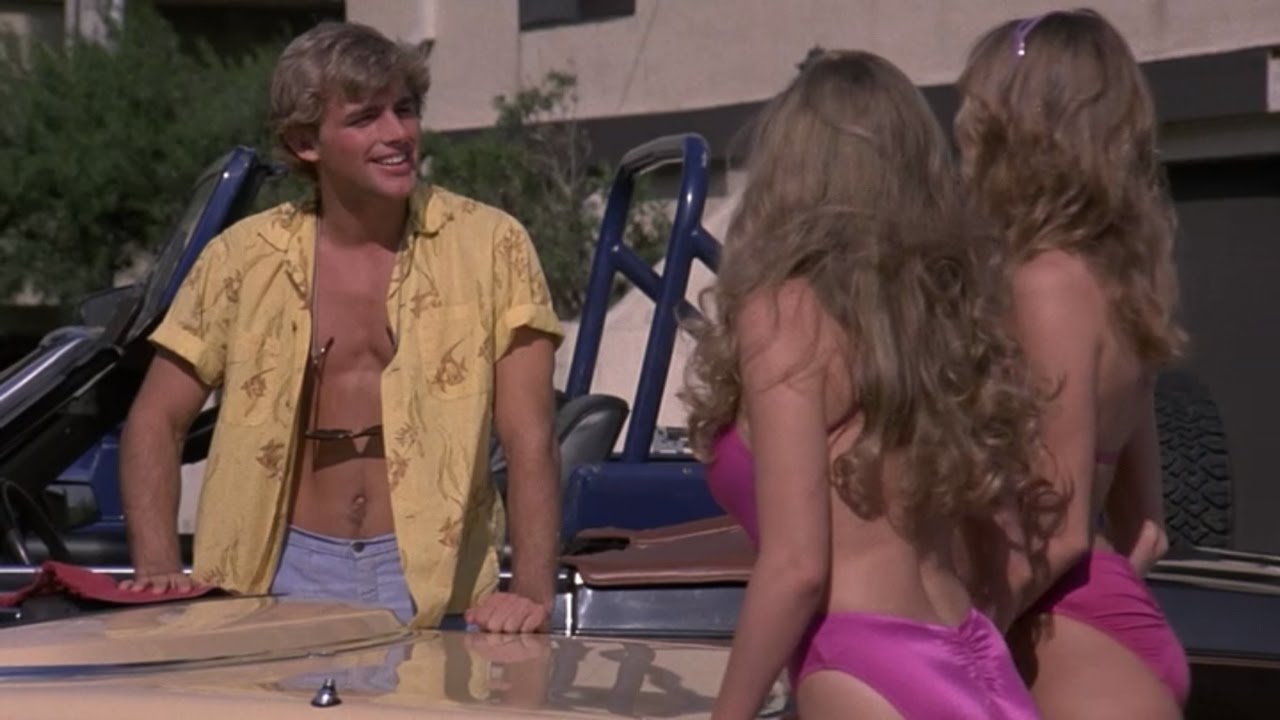
Hardbodies is a screwball comedy with a rather creepy premise that would never, ever fly nowadays: three men in their forties enlist the assistance of a teenage stud to help them attract young girls. Right from the opening credits – bikini-clad beach babes set to a blaring piece of vanilla synth-pop (of course, the song is called “Hardbodies”) – it’s clear we’ve entered the land of the lowest common denominator.
The main character is Scotty, a bleach-blonde surfer bum with an apartment on the So Cal coastline. Rolling in girls but seriously behind on his rent, Scotty agrees to share his seductive methods with three middle-aged guys for the fee of $600 a month. What follows is the usual cavalcade of bare flesh and crude sight gags, but with a thicker-than-usual layer of misogyny slathered across its surface. Like one other entry on this list (coming up next), Hardbodies is technically not a good film; it’s not even a passable comedy.
Despite the fact that 90% of the gags fall pancake-flat, it’s perfectly entertaining for all the wrong reasons, like a time machine that transports the viewer back to 1984 and forces them to hang out with a bunch of unsavory weirdos. The men are piggish meatheads, the women vapid bimbos, beach balls are a-flyin’ and all is well.
Once fairly hip and cutting-edge, Hardbodies now comes off as a relic from a bygone era, from a time before self-referential irony found its way into mainstream cinema. Some of these dated 80’s sex comedies manage to captivate simply because they play so strangely in todays day and age. The jokes don’t have to work, as watching them fail ends up being an experience in and of itself.
In the films honest defense, performances are spirited (I guess…?) and the pacing is certainly quick. If you’re willing to submit, to view the film as a sort of anthropological artifact, Hardbodies will hold your attention. It was originally made for the Playboy Channel but got picked up for theatrical release, and a sequel followed in 1986; it was barely seen and is now somewhat rare.
Patrick Bateman, the main character in Bret Easton Ellis’s novel American Psycho, would have loved this movie. One can almost hear his review: “I selected 10 To Midnight, Body Double, and a teen sex romp called Hardbodies. I was very impressed with Hardbodies. Beneath all the slapstick and gratuitous nudity lay a real moral center, a strong lesson about self-image and inner-worth”.
5. Hollywood Shuffle (1987)
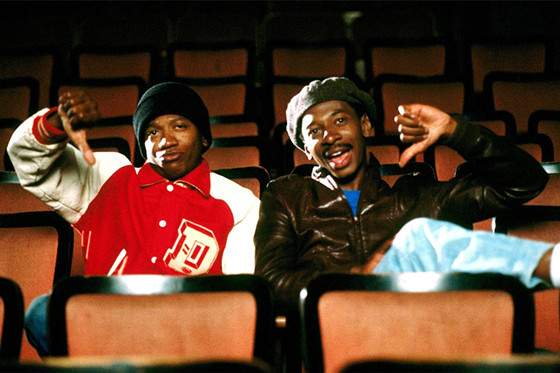
When writer/director/star Robert Townsend began filming his directorial debut, Hollywood Shuffle, it was 1987 and he’d been working steadily as a character actor for over a decade. The hardships he experienced as a black man in showbiz were what formed the basis for Hollywood Shuffle, in which Townsend stars as fledgling actor Bobby Taylor.
Bobby lives in L.A. and bounces from audition to audition, working at a fast-food restaurant called Winky Dinky Dog to make ends meet. After landing a part in the exploitative B-movie Jivetime Jimmy’s Revenge, he finds himself compromising his abilities in order to portray, as per the directors wishes, an “Eddie Murphy-type”.
The narrative moves between these events and Bobby’s daydreams, sketch-like sequences that allow Townsend to focus on his targets with precise efficiency. These moments never disrupt the flow of his film; both the real-life storyline and the elaborate fantasy scenes are compelling and hilariously funny.
Hollywood Shuffle is a film that deals with struggle, both personal and societal. Bobby sees the years slipping away as he languishes in a job that’s beneath him, yet is reluctant to sacrifice his gifts in order to quickly establish himself as an actor. The humor is laced with venom but never oppressive, performed with a frustrated energy.
Quick, pointed, and entertaining, Hollywood Shuffle ingeniously states its case while providing innumerable laughs. Townsend himself put up most of the picture’s $100,000 budget and it earned over $5 million at the box office; his co-writer, Keenan Ivory Wayans, would go on to direct, write, and act in the equally successful I’m Gonna Git You Sucka one year later.